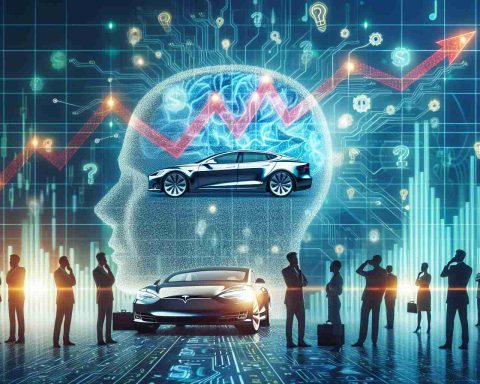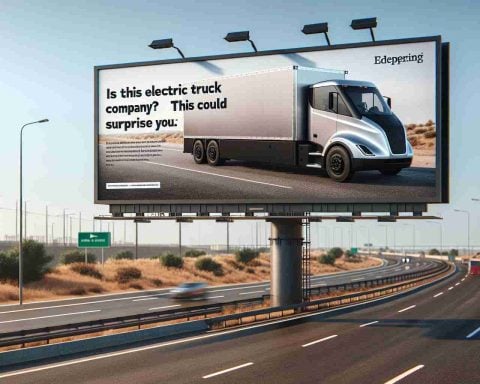Debating the Future of Public Transport
The idea of replacing conventional buses with electric alternatives raises serious financial questions for the Andhra Pradesh State Road Transport Corporation (APSRTC). A significant hurdle lies in the high initial investment; each electric bus is priced between ₹1.8 crore and ₹2 crore. This steep cost poses a considerable financial challenge for the corporation, potentially affecting longer-term economic stability.
As APSRTC explores the advancement of its fleet, the transition to electric vehicles seems enticing from an environmental standpoint. However, the substantial upfront expenditure may not yield immediate financial benefits. With budgets being stretched, the feasibility of such an investment is under intense scrutiny.
Electric buses are often praised for their lower operational costs and reduced emissions, but these advantages must be weighed against their hefty purchase price. While the potential for savings exists in the long run, APSRTC must first navigate the financial implications of this move.
This situation throws a spotlight on the dilemma of modernizing public transport while maintaining fiscal responsibility. As APSRTC considers its next steps, the balance between economic feasibility and environmental responsibility remains a critical point of discussion. The decision ahead will shape the future landscape of public transportation in Andhra Pradesh.
Is the Cost of Electric Buses Worth the Investment for APSRTC?
The Financial Landscape of Electric Public Transport
As the Andhra Pradesh State Road Transport Corporation (APSRTC) considers transitioning from conventional buses to electric alternatives, it is faced with a multitude of financial challenges. Each electric bus comes with a hefty price tag ranging from ₹1.8 crore to ₹2 crore. This significant investment raises questions about the long-term economic stability of the organization and its ability to fund such initiatives.
Pros and Cons of Electric Buses for APSRTC
# Pros:
1. Lower Operational Costs: Electric buses typically have lower fuel and maintenance costs compared to their diesel counterparts. Over time, these savings could contribute positively to the APSRTC’s budget.
2. Environmental Benefits: Transitioning to electric vehicles can drastically reduce greenhouse gas emissions, contributing to better air quality and aligning with sustainability goals.
3. Government Incentives: Many governments provide subsidies and incentives for public transport systems to adopt electric buses, which could mitigate initial costs for APSRTC.
# Cons:
1. High Initial Investment: The upfront cost of buying electric buses remains a barrier, requiring significant budget reallocations or financial assistance.
2. Infrastructure Development: Transitioning to electric buses necessitates robust charging infrastructure, which adds to the overall investment needed.
3. Financial Risk: The existing budgets are already stretched, raising concerns about the financial viability of investing in new technology without immediate returns.
Use Cases and Insights
APSRTC can explore various use cases for electric buses, such as deploying them on high-density routes where passenger volume could help recover costs faster. Additionally, insights from other states and countries that have successfully implemented electric buses can provide valuable lessons and strategies for a smooth transition.
Market Analysis and Trends
The global trend towards electrification of public transport is gaining momentum. Many countries are investing heavily in electric vehicle technology, driven by sustainability goals and advancements in battery technology. This trend highlights the importance of APSRTC staying competitive and relevant in an evolving market.
Limitations and Considerations
While electric buses present numerous advantages, there are limitations to consider:
– Range Anxiety: Electric buses may have limited range compared to diesel buses, necessitating careful route planning.
– Battery Disposal and Recycling: The environmental impact of battery disposal must be addressed as part of any sustainable transition.
– Technological Adoption: As new technologies emerge, APSRTC must remain agile and adaptable to integrate innovations.
Conclusion and Predictions
The future of public transport in Andhra Pradesh hinges on APSRTC’s ability to navigate the complexities of adopting electric buses. A well-thought-out approach that balances economic feasibility with environmental responsibility is vital. As battery technology advances and costs decline, predictions suggest that electric buses could become a more financially viable option in the coming years.
APSRTC’s decision will not only impact its operations but also set a precedent for public transport systems across India. As more authorities consider similar transitions, APSRTC’s experience could serve as a benchmark for future developments in the sector.
For more information on public transport innovations, visit APSRTC.


















